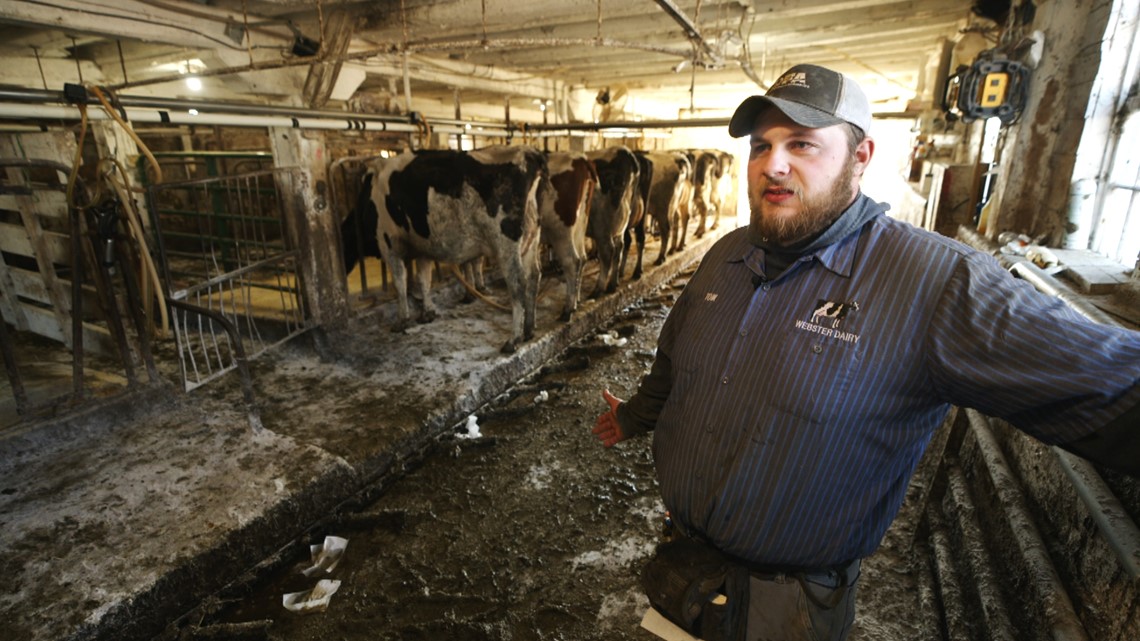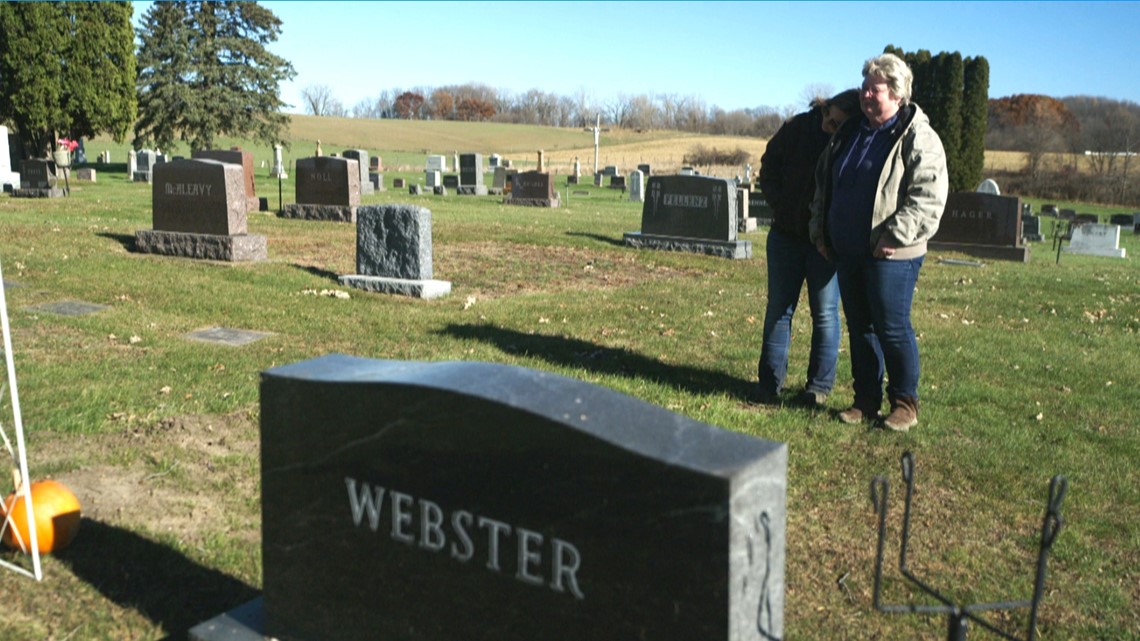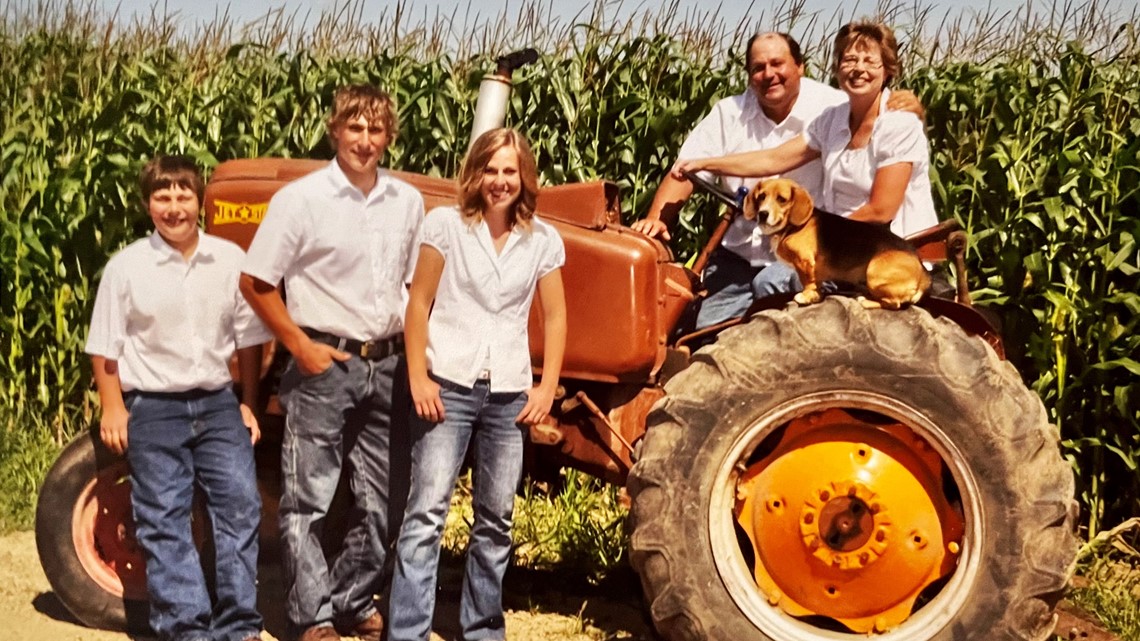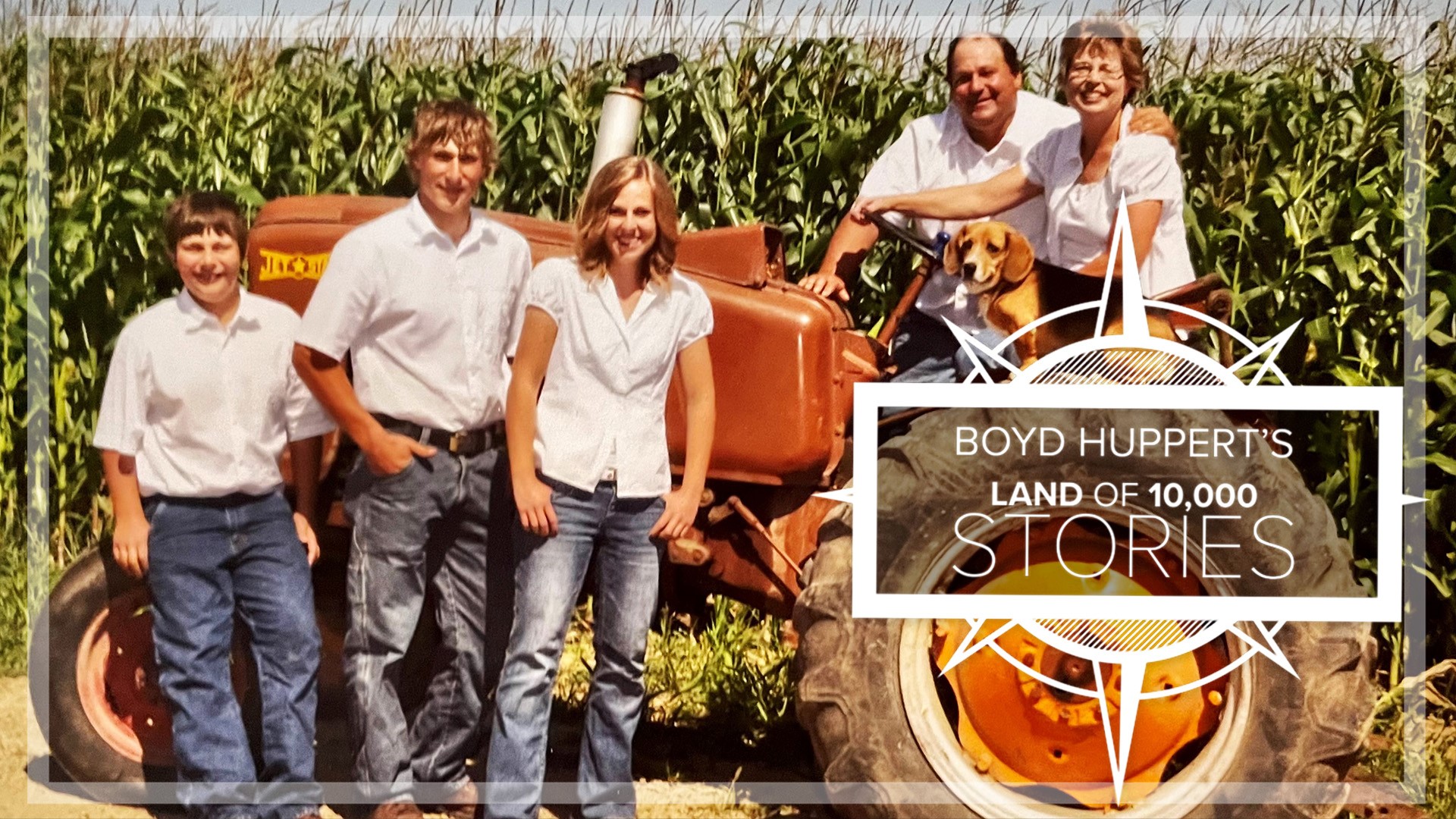ELLSWORTH, Wis. — One-hundred 43 harvests have come and gone since the 1880 founding of the Webster farm.
But this one feels different to Mitchell Webster.
“I'm not used to driving the combine,” says the young man behind the wheel of the hulking machine.
Standing at the edge of the cornfield, Mitchell’s sister Jennifer agrees. This fall’s harvest doesn’t feel right.
“That's dad's office, he's supposed to be in there,” she says, looking off toward the combine.
Brian Webster would be in the combine cab, bringing in the corn crop he planted last spring, if not for the morning of Aug. 3.
Brian’s wife Kim found him that day at his semi-truck.
At age 58, Brian had died by suicide.
“He was my love of my life,” Kim says through her tears. “I just wish he would have talked to me.”
The Webster's story is all too familiar.


The National Rural Health Association says the suicide rate among farmers is 3.5 times the general population.
Key reasons cited by the group ring true to Brian's family.
“You're at the mercy of all these different obstacles,” Jennifer says. “And a lot of it you don't have control over.”
Unpredictable weather and financial pressures bear down hard on farmers, who are often reluctant to seek mental health care.
“There's still a pretty big stigma around mental health and keeping your feelings to yourself.” Jennifer says. “It's a very, unfortunately, still a common thing in agriculture.”
Brian's family decided to address the stigma head on in his obituary, writing – in the first line – that Brian had died from "complications with depression."
Few of Brian's neighbors knew he had struggled with the mental illness that had run in his family.
The condition was passed on again to Brian’s youngest son, Thomas.


“People judge me, I guess, whatever, it's a real thing,” Thomas says as he stops to take a breath while milking the family’s 75 cows. “It's an illness, but I'm not scared to let people know I have it.”
Thomas is on medication.
Once a month, between milkings, he drives from Ellsworth, Wisconsin to Red Wing, Minnesota to see a therapist.
“Talking to people about it makes me feel better, I mean, that's what seems to help me,” he says.
Brian had also sought medical help. His doctor had switched him to a new anti-depressant shortly before he died.
“It's really hard to know what was the tipping point exactly, if there was one thing, if there was multiple things,” Jennifer says. “It's hard for me to make sense that he's not here.”


Brian's family buried him next to his parents within sight of his farm.
Then, a few weeks later, they emailed KARE 11 asked for help sharing their story.
The Websters had some things they wanted to say.
“I want farmers to know,” Brian’s wife says, before broadening her message. “Not just farmers, just anybody.”
Kim, a commodities trader, has taken a lead role in the family’s outreach efforts.
“It's okay to talk about it, it's okay to get help, it's okay to be on medication, it's okay to not be okay,” she says.
The Websters have set aside memorial money from Brian's funeral to help bring the Farmer Angel Network to western Wisconsin. The organization, launched in southern Wisconsin, is made up primarily of farmers helping other farmers who are dealing with depression.


The family has established a GoFundMe page to raise additional funds for the project.
The Websters know, though private, the former combine driver had another attribute.
“Dad always wanted to help people,” Mitchell says. “If he could help somebody, he would.”


Helping now seems like the one thing that could bring some healing to this hurtful harvest.
“Please go get help,” Jennifer says. “There's really no shame in getting help.”
If you or someone you know is facing a mental health crisis, there is help available from the following resources:
- Crisis Text Line – text “MN” to 741741 (standard data and text rates apply)
- Crisis Phone Number in your Minnesota county
- National Suicide Prevention Lifeline at 988, Talk to Someone Now
- SAVE – Suicide Awareness Voices of Education
- Throughout Minnesota call **CRISIS (**274747)
- The Trevor Project at 866-488-7386
Watch more from the Land of 10,000 Stories:
Watch the latest videos from the Land of 10,000 Stories in our YouTube playlist and subscribe to the Land of 10,000 Stories Complete Collection on YouTube.

